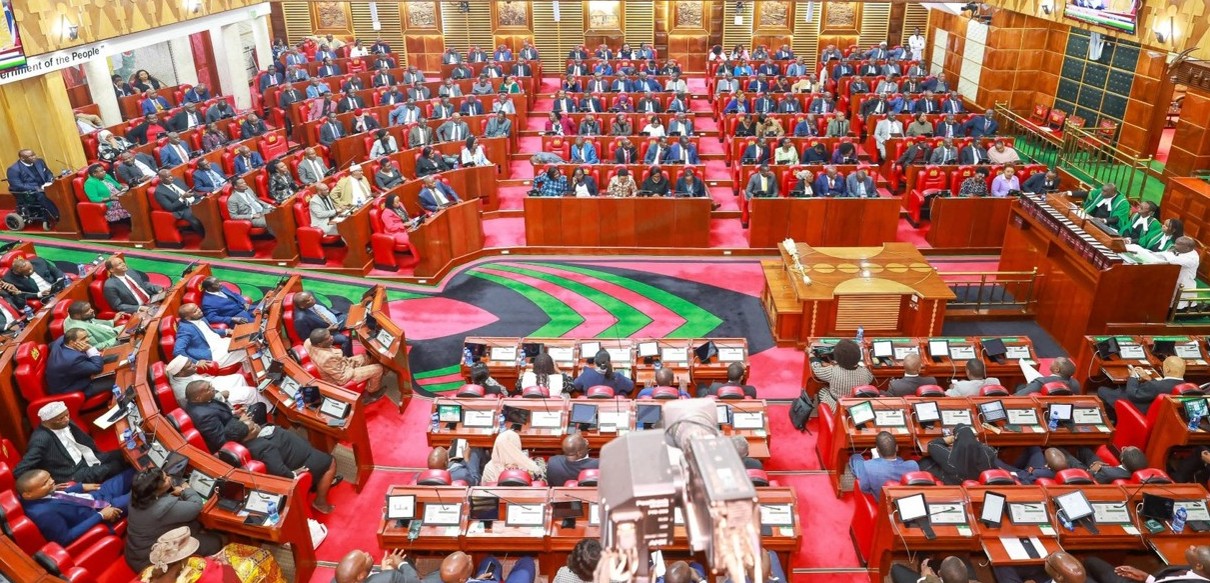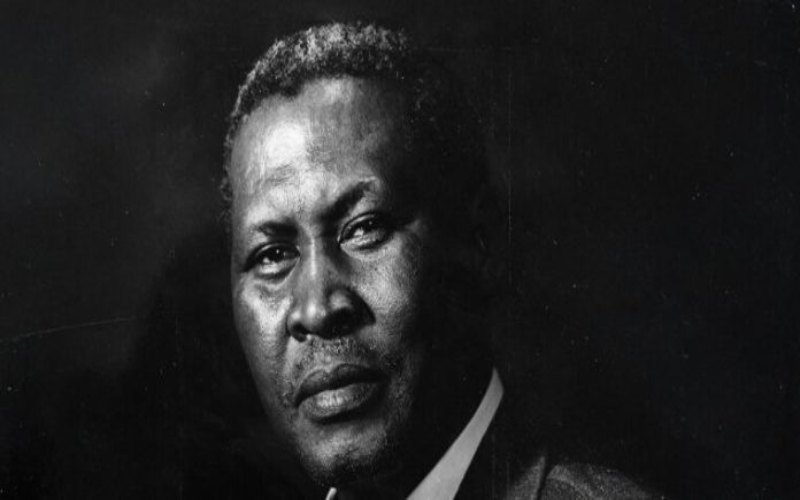US withdrawal from WHO sparks alarm among nations over risks to global health

Critics argue that the withdrawal comes at a critical time when global solidarity is crucial to addressing ongoing and future health crises.
US President Donald Trump's decision to withdraw from the World Health Organisation (WHO) for the second time in less than five years has sparked both concern and support.
The United States' withdrawal from the WHO on January 20, 2025 marks a significant development in global health diplomacy and has several potential repercussions, both for the US and the global health system.
More To Read
- Reported massacre at hospital in Sudan’s El Fasher leaves 460 dead
- US revokes visa for Nigerian Nobel laureate Wole Soyinka after criticism of Trump
- Severe flooding affects over 960,000 in South Sudan: UN
- WHO says polio eradication still feasible despite Sh219 billion funding cuts
- Data gaps threaten Kenya’s health goals as key indicators on mental health, drugs go unmeasured
- WHO says DRC could declare end of Ebola outbreak by December
This action follows a turbulent history of US relations with the WHO, which had already seen a withdrawal announcement under Trump in 2020 and was briefly reversed under the subsequent administration of Joe Biden in 2021.
The latest move by President Trump has raised widespread concern among global health experts and leaders, who fear its ramifications could weaken international efforts to combat infectious diseases and prepare for future pandemics.
Global solidarity
Critics argue that the withdrawal comes at a critical time when global solidarity is crucial to addressing ongoing and future health crises.
The WHO has long been a cornerstone of international cooperation in addressing global health threats, such as Ebola, malaria, polio, and more recently, Covid-19.
The US has historically been the organisation's largest donor, contributing between $160 million to $815 million annually over the past decade.
This funding has supported critical programmes like vaccine distribution, epidemic response, and maternal health initiatives, particularly in resource-limited countries.
Losing US financial support could severely hinder the organisation's ability to coordinate global health efforts.
Lawrence Gostin, director of the WHO Collaborating Centre on Global Health Law at Georgetown University, warned that this withdrawal could have dire consequences.
"A US withdrawal from WHO would make the world far less healthy and safe," he said, emphasising that reduced resources would compromise global surveillance and epidemic response, increasing the likelihood of unchecked outbreaks escalating into pandemics.
The reduction in funding could also slow down efforts to respond to emerging health crises and implement critical health initiatives globally.
The United States has historically played a key role in shaping global health policies.
Its exit is likely to reduce US influence over WHO decisions, weakening its ability to steer global health priorities, such as responses to pandemics, vaccine distribution, and health security.
The withdrawal may also create a vacuum in leadership that could be filled by other nations or organisations, potentially shifting global health governance dynamics.
The impact will be felt most acutely in low- and middle-income countries that rely heavily on WHO for technical expertise, vaccines, and medical supplies.
Without US contributions, essential programmes aimed at eradicating polio, combating tuberculosis, and supporting maternal and child health could be drastically scaled back or discontinued altogether.
Access to critical databases
Also, American agencies like the Centres for Disease Control and Prevention (CDC) and the National Institutes of Health (NIH), which collaborate closely with WHO, would lose access to critical databases and coordinated initiatives.
Dr Tom Frieden, president and CEO of the advocacy group Resolve to Save Lives, called the decision a step backwards for global health security.
"Withdrawing from WHO not only cuts crucial funding from the agency but also surrenders our role as a global health leader," Frieden said.
The US’s absence could exacerbate vulnerabilities in the global health system, leaving gaps in epidemic response efforts.
This is especially concerning as novel diseases continue to emerge, posing a constant threat to global stability.
"We cannot make WHO more effective by walking away from it. This decision weakens America's influence and increases the risk of a deadly pandemic," Frieden said.
The withdrawal could also have broader geopolitical consequences, as it may signal a shift toward a more isolationist US foreign policy.
Countries may view this as a rejection of multilateralism and could respond by strengthening regional health initiatives or seeking more independent solutions to global health challenges.
Additionally, countries such as China and Russia, which have increasingly taken leadership roles in international organisations, may seek to expand their influence on global health.
WHO Director-General Tedros Adhanom Ghebreyesus has expressed a willingness to work with the US, emphasising the importance of international cooperation.
"We really believe in cooperation ... The relationship between WHO and the US has actually been a good model of partnership," Tedros said.
Top Stories Today













































